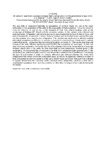Use este identificador para citar ou linkar para este item:
http://www.alice.cnptia.embrapa.br/alice/handle/doc/964457Registro completo de metadados
| Campo DC | Valor | Idioma |
|---|---|---|
| dc.contributor.author | BEZERRA, V. S. | pt_BR |
| dc.contributor.author | CABRAL, L. M. C. | pt_BR |
| dc.contributor.author | COELHO, E. A. A. | pt_BR |
| dc.date.accessioned | 2013-08-21T11:11:11Z | pt_BR |
| dc.date.available | 2013-08-21T11:11:11Z | pt_BR |
| dc.date.created | 2013-08-21 | pt_BR |
| dc.date.issued | 2013 | pt_BR |
| dc.identifier.citation | In: PANGBORN SENSORY SCIENCE SYMPOSIUM, 10th., 2013, Rio de Janeiro. [Abstracts...]. Rio de Janeiro: Elsevier, 2013. | pt_BR |
| dc.identifier.uri | http://www.alice.cnptia.embrapa.br/alice/handle/doc/964457 | pt_BR |
| dc.description | The açai drink is consumed habitually by populations of northern Brazil, but one of the major bottlenecks in the production of this drink is the seasonality of fruit production. Hence the needs to study the influence of cold storage on the transport of fruits from distant locations, such as the archipelago of Bailique (AP, Brazil) until the consumer centers. In this context, fruits collected and packaged under refrigeration and room temperatures were transported by boat for twelve hours and were subsequently processed in a mixer. Sensory analysis was performed in two consecutive days and the samples were stored under refrigeration. This analysis was performed by affective method with global acceptance (n=54) and the samples presented in a balanced way. It was used a hedonic scale with 9 points, ranging from like extremely (9) to dislike extremely (1). The results show that cold storage of the fruits affected significantly (p=0.002467) the acceptance of beverages in both two days of sensory evaluation. On the first day, the drink originated from fruits transported at cold storage received note 8 (liked a lot), while the drink from fruits at room temperature reached grade 7 (like moderately). On the second day of evaluation, the drink from refrigerated fruits received note 7 (like moderately) and drink from fruits stored at room temperature obtained note 5 (indifferent). Considering the type of preservation of fruits, no sensory difference was detected between the drinks from refrigerated fruits served on the two consecutive days, as well as no significant difference in drink of fruits transported at room temperature in this same period. It was concluded that açai fruits collected in regions distant from the consumer center, but kept under refrigeration, produce a drink with a considerable acceptance level, and they could be an alternative for supply of raw material during the off season. | pt_BR |
| dc.language.iso | eng | eng |
| dc.rights | openAccess | eng |
| dc.subject | Sazonalidade | pt_BR |
| dc.title | Influence of açai fruits (Euterpe oleracea Mart.) conservation on the acceptance of açai drink. | pt_BR |
| dc.type | Resumo em anais e proceedings | pt_BR |
| dc.date.updated | 2018-07-24T11:11:11Z | pt_BR |
| dc.subject.thesagro | Palmeira oleaginosa | pt_BR |
| dc.subject.thesagro | Euterpe Oleracea | pt_BR |
| dc.subject.thesagro | Açaí | pt_BR |
| dc.description.notes | Resumo P1.5.010. | pt_BR |
| riaa.ainfo.id | 964457 | pt_BR |
| riaa.ainfo.lastupdate | 2018-07-24 -03:00:00 | pt_BR |
| dc.contributor.institution | VALERIA SALDANHA BEZERRA, CPAF-AP; LOURDES MARIA CORREA CABRAL, CTAA; SETEC/FINEP. | pt_BR |
| Aparece nas coleções: | Resumo em anais de congresso (CPAF-AP)  | |
Arquivos associados a este item:
| Arquivo | Descrição | Tamanho | Formato | |
|---|---|---|---|---|
| CPAFAP2013Influenceacaifruits.pdf | 62,5 kB | Adobe PDF |  Visualizar/Abrir |









